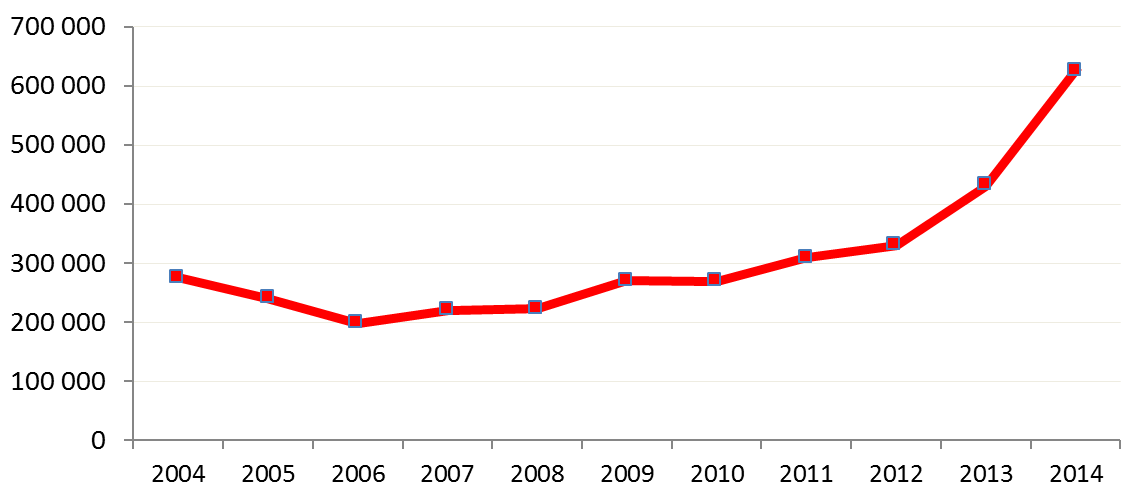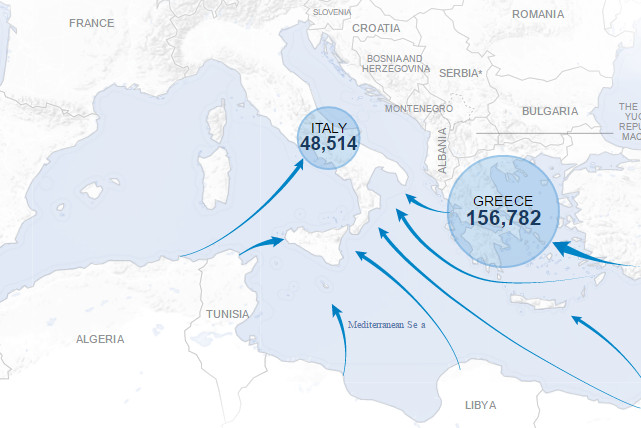In the last months, immigration to the European Union has become the main topic of interest. The European Union is facing an influx of refugees of proportions never experienced before. Seeking a solution is challenging both for national governments and representatives of the EU.
Solutions requiring a change at the level of paradigmatic approach generally hard to find, formulate and even harder to adopt and carry through.
To prevent the escalation of the immigration crisis, and at the same time not to abandon European values of humanity and human dignity is the most difficult task facing European nations today. Compassion with people in difficult conditions is an important value. But particular helping measures must be based on realistic possibilities, a sober evaluation of consequences and preferentially be oriented towards addressing the causes of the problem.
Today, there is general awareness that multiculturalism has failed. Leading politicians such as the German chancellor Angela Merkel, the British prime minister David Cameron or the minister of foreign affairs of Slovakia Miroslav Lajčák have openly stated d it. Neither the assimilation nor the integration model have brought forth the expected effects. The result is rather segregation and growing tension between populations differing culturally, racially or religiously.
In light of these facts, it is quite surprising that many representatives of Western countries take no issue with or even affirm the ever growing diversity in Europe. Multiculturalism has not proven itself to be a prospective project, and this should manifest itself clearly in the asylum policy.
Graph: The number of people who applied for asylum within the EU for the first time

Source: Eurostat
The number of asylum applications in the European Union has been growing in the last years. As can be seen in the graph above, this number exceeded 600 000 people last year. And the figure is expected to be surpassed yet again this year.
It is apparent that the countries of Western Europe have become a desired destination for a considerable part of the world, and this phenomenon is on the rise. The agenda surrounding the asylum process is very costly even in cases where the application gets declined. This development is not sustainable in the long run. Systematic steps are needed to decrease rather than increase the number of asylum applicants, so that it falls within reasonable boundaries for the European Union.
Many of the regions and countries in Africa and the Middle East are in war over continual periods of time, and a steep rise in immigration has been seen since 2010. This by itself indicates that a common motive for immigrants is an increase in living standards. These applicants are called “economical migrants”. They want to improve their standard of living by acquiring a better job or heightening of their prospects of finding one.
In addition, a migrant relying on becoming a recipient of the benefits of the state welfare system can also be called an economical migrant (although this is often not included in official definitions). The welfare money received is, comparative to the standards the migrant is used to, quite high.
Because the chances of being granted asylum are better for migrants who also are refugees, many economic migrants try to somehow feign refugee status. The EU authorities are not able to effectively unmask this strategy. And it is clear that today’s quite benevolent attitude encourages an even larger increase in illegal crossing of borders and application for asylum. According to statistics, immigrants arriving to Europe by crossing the Mediterranean are 72 % male, laying the groundwork for future unification of families. The overall number is thus much higher.
The populations of these migrants’ countries of origin are considerably larger than the current population of the EU. If the present asylum trends would continue, Europe would change its face beyond recognition in a matter of decades.
The stream of immigrants would probably halt in the moment when the living standard in the EU would drop to that of the immigrants’ source countries.
The fact that tens of thousands of illegal immigrants are risking their lives and the lives of their children – and that thousands have already died – is the consequence of the EU asylum policy which is encouraging such behavior by its indulgence.
Paradoxically, it is precisely the countries responsible for this careless policy which demand the redistribution of asylum seekers to other countries.
The only effective way to not only reduce illegal immigration to Europe, but also rapidly diminish the lawless and life endangering crossing of borders, is to send a clear and prompt sign that the chances of being granted asylum are minimal.
- The present-day duration of the asylum process should be considerably shortened. Applications should be processed at the borders of EU without an option to migrate through Europe. The associated costs should be a shared expense of the EU member states.
- The borders of the EU have to be guarded more vigorously and persons involved in people smuggling punished more severely. All EU member states should participate on the protection and guarding of EU borders.
- Every immigrant claiming refugee status in order to save his or her life, e. g. fleeing from war, should be content with the closest country in which there is peace. If he or she disagrees, he or she should be considered an economic migrant, thus allowing for the asylum application to be immediately rejected. The migrant would be subsequently returned to his or her country of origin.
- The degree of solidarity with other people is usually associated with common features in identity, such as race, ethnicity or religion. Populations with such common traits are also geographically proximate, have a more similar living standard and understanding of humanity and human dignity. These facts alone significantly limit the possibilities for speculative behavior. It is important to adopt – on an international level – the principle that countries with a significantly different majority population than that of the applicant can forward the application to the closest safe country with a similar identity. This country would be obliged to deal with the asylum seeker.
- European Union should unequivocally and resolutely state that it is not a new home for other continents. This would considerably reduce the immigration pressure and prevent many tragedies.
- One of the key causes behind mass immigration into Europe should be openly recognized: the direct or indirect meddling in the internal affairs of non-European countries by the West, mainly the USA, motivated mostly by geopolitical and economic reasons. Interventions of the West should be limited to inevitable action in crisis situations and always directed towards peace, not supporting and arming a preferred side of the conflict. Non-European countries should be enabled to hold their own ground with respect to their cultural specifics. Their forced incorporation into the system of global capitalism and Western-type democracy should be stopped.
Institute for Paradigmatic Reforms
Bratislava, September 10, 2015
Zdieľať na Facebooku



